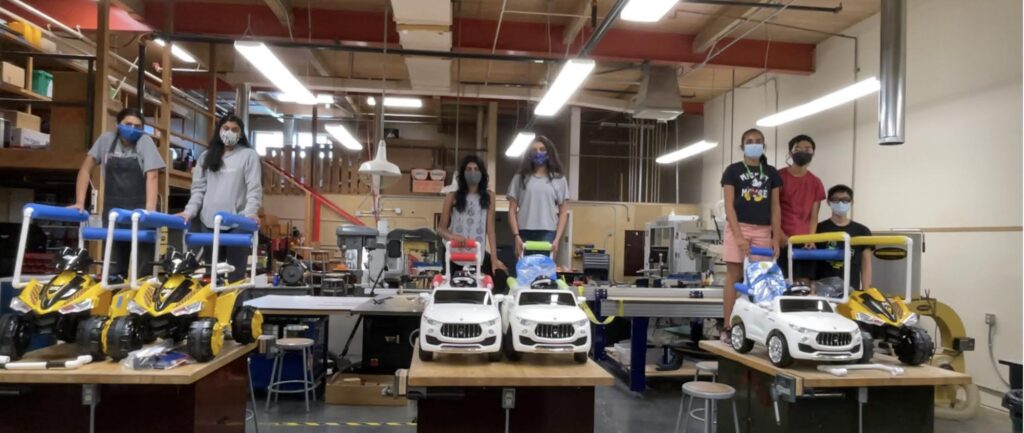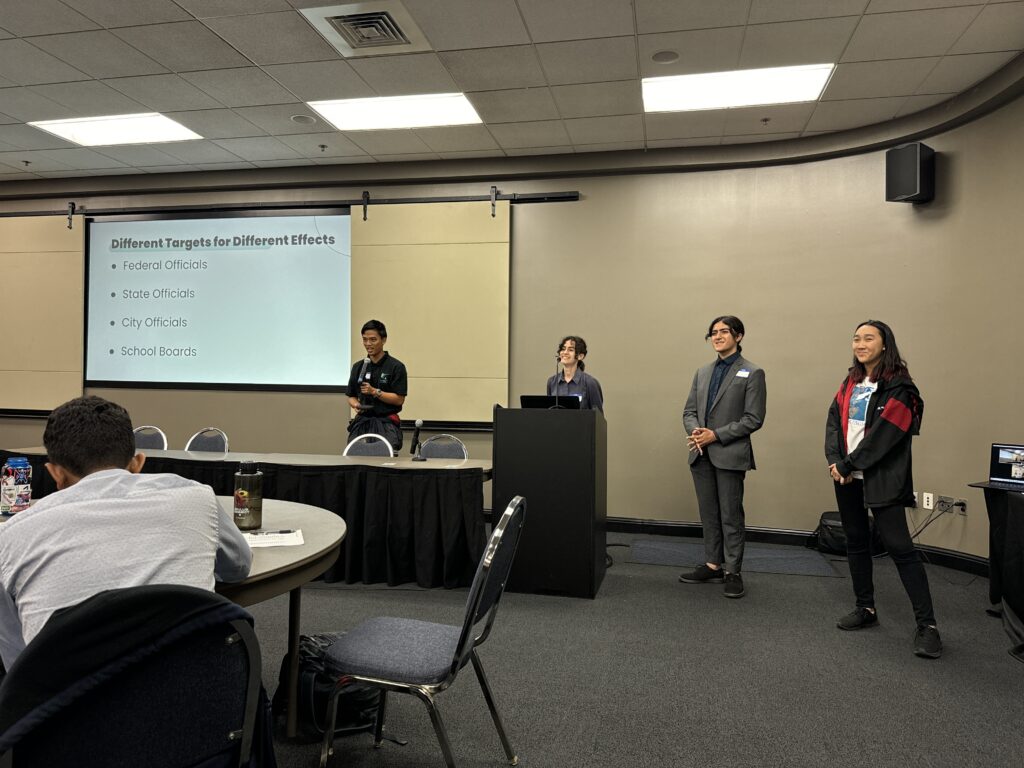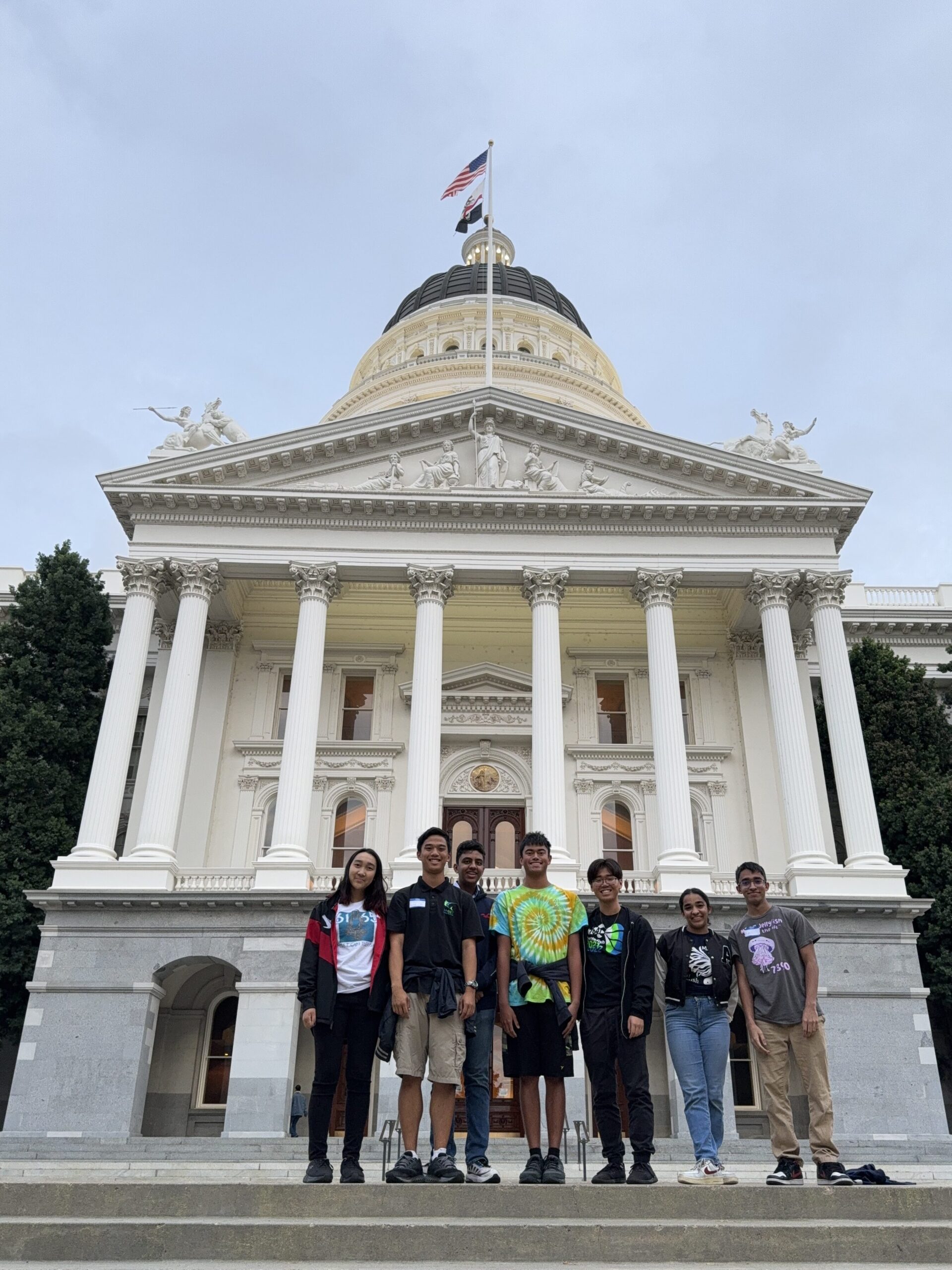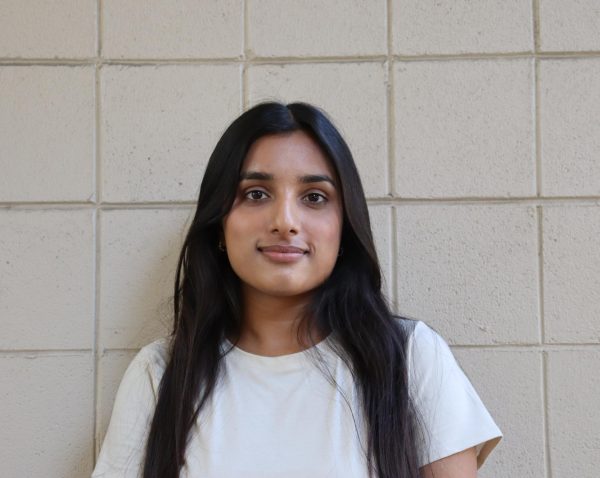“Through schools of fish, this team makes ripples of impact turn into waves of change. Congratulations to team number 649, the MSET Fish!”
Screams of joy erupted from the 35 members of the SHS FIRST Robotics Competition (FRC) team. They had just won the FIRST Regional Impact Award at a tournament in Monterey on March 31. The award celebrates a team’s long-standing impact on their community over a period of five years and their ability to serve as a role model for other robotics teams.
Selected as the sole winner of this award out of 50 teams at the competition, this honor not only meant that the panel of judges recognized the impact of their outreach initiatives, but also signified that they had just qualified for the World Championships, hosted in Houston from April 17-20.
There are three ways to qualify for the World Championships from each regional event — winning the tournament or receiving one of two judged awards: the “Impact Award” or the “Engineering Inspiration Award.” The team qualified in 2022 and 2023 for these two awards, respectively.
Both awards recognize a team’s community outreach initiatives, many of which impact middle or elementary school students, other robotics teams in need of mentorship and even children in other countries. The Engineering Inspiration Award, in comparison to the Impact Award however, recognizes teams who have placed special emphasis on spreading STEM education.
The Impact Award application has three main components: written essays submitted by each team before the competition, a 7-minute outreach presentation by three members of the team in front of judges at the event and a 5-minute interview immediately following the presentation. The judges read the essays and complete the presentation and interview process with every team at the event before choosing one winner to present the award to.
Senior Ameya Saund has been on the Impact Award presentation team for two years. Winning the award this season, however, was especially meaningful to her, as it is her last year on the team after four successful years of competition.
“Winning Impact this year meant a lot because it is cumulative of the past three years of outreach that we have done to positively impact our community, and we got to showcase what we’ve done throughout my time in high school,” Saund said. “Seeing what our team has been able to accomplish and how we were able to grow means so much to me.”
The FRC team boasts over 10 thriving outreach “initiatives,” or individual projects led by different students on the team. Three of them are particularly usual in comparison to the work that most other FRC teams do.
GoBabyGo!: creating equity through mobility
MSET — short for the Mechanical Science and Engineering Team — started their chapter of GoBabyGo! in 2019, focusing on empowering young children with mobility disabilities such as Down Syndrome and Cerebral Palsy to gain strength and move independently. The team does this by modifying children’s ride-on toy cars to allow them to be operated solely when a button to drive it is pressed by parents for safety, and then encouraging the child to stand by adjusting the car so that it only moves when the child stands.
Video by Saachi Jain

Photo by Saachi Jain
The team has partnered with organizations such as the Children’s Hospital of Northern California to apply these cars in a clinical and outpatient setting.
Vikalp Sansthan: empowering girls in India to learn English
During the pandemic, the team began collaborating with an organization in India called Vikalp Sansthan, aimed at eradicating child marriage in rural areas through education. The team began creating conversational English and math videos to teach young girls across many villages in Bangalore, India. Initially started by Class of ‘22 alumnus Kaasha Minocha, Vikalp is now spearheaded by Saund and has become one of her most personally impactful initiatives.
“We got videos back from the organization with some of the girls speaking about their favorite seasons,” Saund said. “Hearing them speak the English that I taught them motivated me to work harder towards this initiative.”
California Association for STEM Advocacy (CASA): advocating for increased STEM funding nationwide
The team attended the annual National Advocacy Conference hosted in Washington, D.C., in late June, which is aimed at uniting robotics teams to advocate for increased funding for STEM programs across the country.
Following this conference, members saw the need for STEM advocacy at a more localized level and sought to improve the accessibility of robotics in areas of California that do not have as many resources. In collaboration with a few other local teams, they co-founded the California Association for STEM Advocacy (CASA) and have hosted the California Advocacy in Leadership Conference for the past year. This conference has united over 10 teams from the state and recently allowed for a bill to be drafted that would increase funding for afterschool STEM programs and push for the establishment of an annual California STEM Day, proposed for March 23.
Senior team lead Cameron Nguyen, who is also a presenter on the Impact Award team, was the driving force behind this initiative from the start.
“Working on CASA has been great, and we’ve gotten to work with so many teams to teach them to speak up and advocate to their state,” Nguyen said.

Courtesy of Cameron Nguyen
Senior Cameron Nguyen and junior Manlin Zhang introduced the first ever California Advocacy In Leadership Conference (CALC) in November of 2023.

Courtesy of Cameron Nguyen
(Left to right) Junior Manlin Zhang, senior Cameron Nguyen, sophomore Arahan Balasubramanian, seniors Jarrett Singh and Kai Otsuka and juniors Asheeka and Aadit Noronha pose in front of the California State Capitol Building following a successful California Advocacy In Leadership Conference (CALC) conference in November.
The team competed against other Regional Impact Award winners at the World Championships from April 17-20, presenting their program to a panel of judges at the Championships. Even though they didn’t win an award at Championships, their work is far from over.
“Unlike the robot build, outreach is year round. This qualification reminds us just how important the impact that we have on communities is,” junior outreach member Sameera Kapur said. “We are going to continue to expand our reach and help as many communities as thoroughly as possible.”































